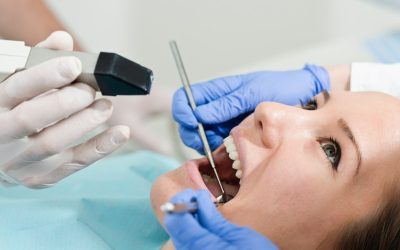Gum disease, also known as periodontal disease, affects many adults in one form or another. It can come in the form of anything from simple inflammation to much more serious cases in which the soft tissue and even the bone structure around the teeth can be damaged. Without treatment, it can lead to loose or even missing teeth.
As it is caused by the buildup of plaque and tartar, gum disease can often be prevented with adequate home care. Regular brushing and flossing help to remove plaque, so it’s important to follow dentists’ recommendations. If plaque is left on the teeth for too long it causes a buildup of tartar that regular home brushing can’t remove. Most dentists suggest regular preventative cleanings every six months to help avoid the need for gum disease treatment in Loveland CO and elsewhere.
The most common form of gum disease is gingivitis. This swelling and bleeding of the gums is often reversible with routine home maintenance and professional cleanings, and does not typically affect structural tissue or bone. However, if it is not treated early gingivitis can turn into a more serious problem. Periodontitis forms spaces around the teeth as the gums pull away due to swelling. These spaces, or pockets, attract plaque buildup beneath the gum line and are prone to bacterial infection. Gum disease that has progressed to this point may cause destruction of tissue and bone, and in serious cases leads to tooth loss.
Gum Disease Treatment in Loveland CO to address this more serious concern often includes scaling and root planting. These processes remove plaque and tartar from beneath the gums and smooth out rough spots where bacteria can accumulate. If the periodontitis has progressed too far, antibiotic or antimicrobial medications may be necessary.
Should these prove ineffective, surgical intervention is possible. Flap surgery restores the gums to a tighter state around the teeth after deep cleaning, which can make it easier for patients to keep the area free of infection. Bone and tissue grafts can help regenerate tissue lost to the disease and promote healthy bone regrowth. These surgical procedures should be considered a last resort. The best way to deal with gum disease is as soon as it appears, as early detection and treatment is very effective at preventing the need for more serious intervention later down the line.









